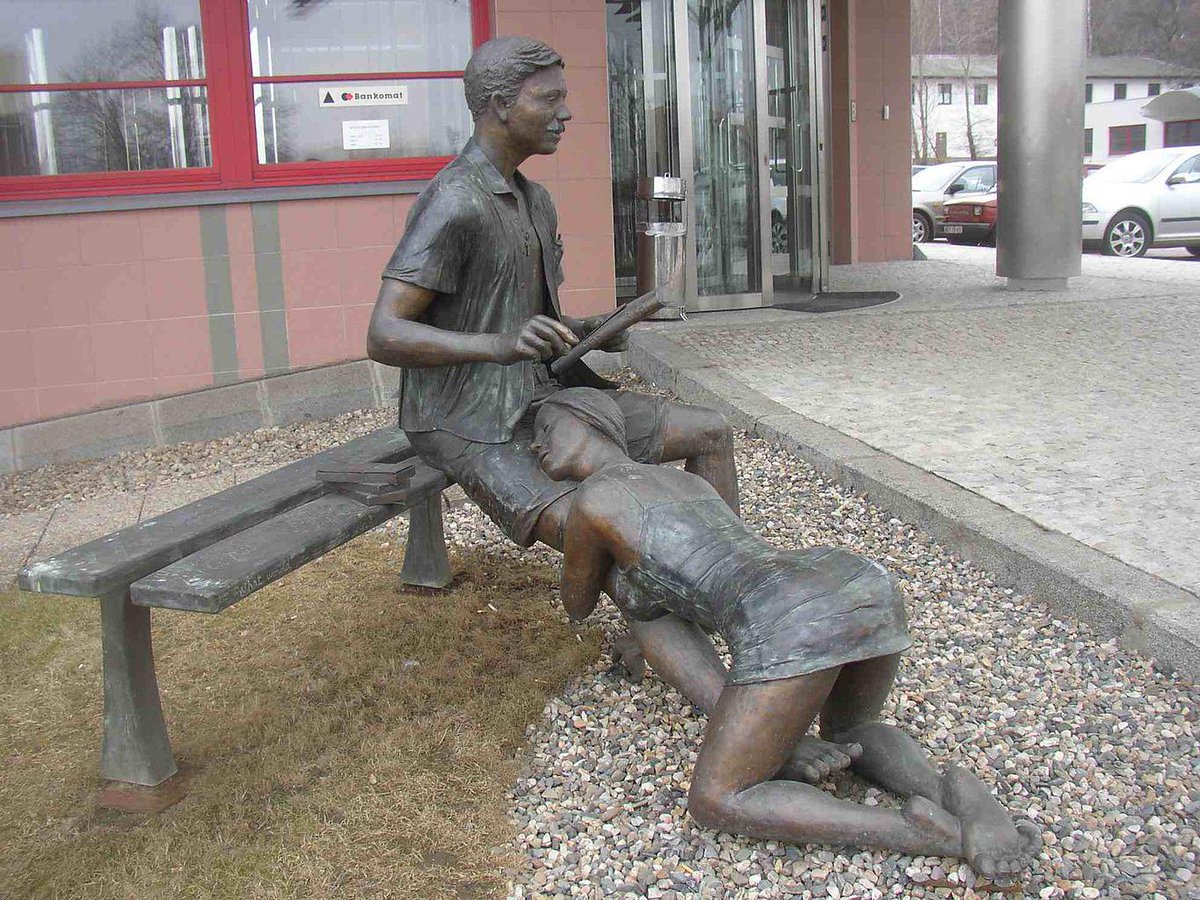Never worry about anything. Live in the present. Live now. Be happy.
— Marsilio Ficino, who died on this date in 1499
It’s no surprise I find myself in libraries and bookstores in my dreams. Sometimes I’m lost in the stacks and mildly anxious, but more often the sensation is reassuring. I feel at home. The dreams are realistic, without banal surrealistic touches. Recently I found myself in the basement of Kay’s Books, where I worked in 1975. I was fetching a copy of John Cheever’s The World of Apples, something I actually did forty-two years ago. I found it, realized I wanted it, and then, on the cusp of a moral lapse, woke.
Reynolds wins chaotic, rain-soaked Bathurst 1000

— Marsilio Ficino, who died on this date in 1499
It’s no surprise I find myself in libraries and bookstores in my dreams. Sometimes I’m lost in the stacks and mildly anxious, but more often the sensation is reassuring. I feel at home. The dreams are realistic, without banal surrealistic touches. Recently I found myself in the basement of Kay’s Books, where I worked in 1975. I was fetching a copy of John Cheever’s The World of Apples, something I actually did forty-two years ago. I found it, realized I wanted it, and then, on the cusp of a moral lapse, woke.
Reynolds wins chaotic, rain-soaked Bathurst 1000

What’s the ultimate way to defy depression, disease and early death? Exercise Guardian Just swim at Wiley Baths
A The Four Horsemen (Amazon, Apple, Facebook and Google) have not just created new businesses, but changed the nature of the economy and rules for success for ever. To win in the digital age - and to create massive stakeholder value - requires an understanding of how these firms became the most successful and influential organisations in history, the first with the potential to be valued at one trillion dollars. A The Four Horsemen are winning not just because of their technology and talent. Each taps into an instinctive, evolutionary need and has captured value serving these needs- Amazon, our need to hunt and gather; Apple, our need to procreate; Facebook, our need for love; and Google, our need for a God. A There is a core set of eight requirements for winning in the digital age. The analysis presented in this book explains how our new digital economy really works, what separates winners from losers, and what is required to create The Fifth Horseman. Leading candidates include Uber and, as unlikely as it appears, Starbucks.
A The Four Horsemen (Amazon, Apple, Facebook and Google) have not just created new businesses, but changed the nature of the economy and rules for success for ever. To win in the digital age - and to create massive stakeholder value - requires an understanding of how these firms became the most successful and influential organisations in history, the first with the potential to be valued at one trillion dollars. A The Four Horsemen are winning not just because of their technology and talent. Each taps into an instinctive, evolutionary need and has captured value serving these needs- Amazon, our need to hunt and gather; Apple, our need to procreate; Facebook, our need for love; and Google, our need for a God. A There is a core set of eight requirements for winning in the digital age. The analysis presented in this book explains how our new digital economy really works, what separates winners from losers, and what is required to create The Fifth Horseman. Leading candidates include Uber and, as unlikely as it appears, Starbucks.
- In his new book, NYU professor Scott Galloway explains how Amazon, Apple, Google and Facebook have succeeded in exerting influence over our attention, our loyalty — and our personal information.
- "These companies avoid taxes, invade privacy, and destroy jobs to increase profits because ... they can," Galloway writes.
- Galloway tells CNBC about his new book: "We think these companies are progressive, when their behavior is more like Darth Vader crossed with Ayn Rand."
“No one can build you the bridge on which you, and only you, must cross the river of life,” wrote the thirty-year-old Nietzsche. “The true and durable path into and through experience,” Nobel-winning poet Seamus Heaney counseled the young more than a century later in his magnificent commencement address, “involves being true … to your own solitude, true to your own secret knowledge.”
Bohemian Karlove Vary the Music of Glass blowing ..
Schools and the "Creativity Crisis"
A few weeks ago I wrote about the traditional education system, the need for the system to change and the introduction of digital technology into the classroom to foster learning and increase engagement. This is only half the bill. Bringing back creativity into classrooms is even more important than introducing technology.
Previously I’ve referred to this as ‘education crisis’. Now schools are also facing what Will Burns, CEO of virtual-ideation firm Ideasicle refers to as "creativity crisis." To solve the problem he suggests reframing how creativity is looked at in schools – from a series of downstream talents like music, theater or visual arts towards a more upstream life-skill “that can be applied to all aspects of a student’s life”. Agreed.
Burns goes on to explain the difference between talent and creativity. Being exposed to music – say playing an instrument for instance – is a talent, which can be used to explore one’s own creativity. That makes sense. Students who don’t display any affinities for what’s traditionally labelled the ‘creative arts’ then are at a disadvantage when it comes to exploring and developing their creativity. In contrast to popular belief this doesn’t mean these students aren’t creative. It just means that they need other tools to discover and develop their own creativity.
It’s like Edward de Bono said: “Creativity is the most important human resource of all.” Many are worried about AI and automation taking over jobs, but only few seem to realize that creativity can help here, too. Human soft skills like creativity, dexterity and empathy cannot be automated as easily as hard skills. Think about it. The one thing that differentiates humans most from AI is the ability to dream new ideas, reverse our thinking, and make new connections.
Without creativity there is no progress. Without schools encouraging creative thinking we will run into some serious problems in the future. I like how Burns puts it: “Outperforming the competition is important, but outthinking them is even more so.”
Body clock scientists win Nobel Prize BBC
Last year we attended the memorial service for an engineer who also was a reader. On the program were printed Romans 12:12, a stanza from Dickinson and Greville’s Caelica LXXXII:
“You that seek what life is in death,
Now find it air that once was breath.
New names unknown, old names gone:
Till time end bodies, but souls none.
Reader! then make time, while you be,
But steps to your eternity.”
What Exactly Is ‘Cultural Memoir’? Margo Jefferson Explains
“For me, cultural memoir is a mutating definition. I first began to think in that way when I was working with the boundaries between criticism – literary, cultural, or whatever – which I had done for so many years, and memoir. I realised that I needed, in some way, to merge and to keep those two forms in dialogue, interrogating – as we like to say – each other. So, I began to think of cultural memoir. Initially I was just working obviously with non-fiction but, as you can see, fiction and theatre make their way in here, too.”

UNDERCOVER AT THE BULLSHIT FACTORY Current Affairs
Marginal Revolution covered What3Words the innovative addressing system several times before. Here’s some news:
Forbes: What3words (w3w) has a surprisingly simple and efficient way to find an address and get you there. The London startup has divided the world into a grid pattern of 57 trillion 3m x 3m squares and given each one a unique 3-word address. It means anyone can accurately find any location and share it instantly, removing the ambiguity from the search process.
At the Frankfurt Motor Show this week, Mercedes Benz announced it would be integrating this radical new address system into a selection of its models from 2018. “The United Nations and the Red Cross use us in disaster zones, and now Mercedes has realized that there is a problem in the developed world with accurate mapping systems and they have employed our software,” says Giles Rhys Jones, w3w’s chief marketing officer.


